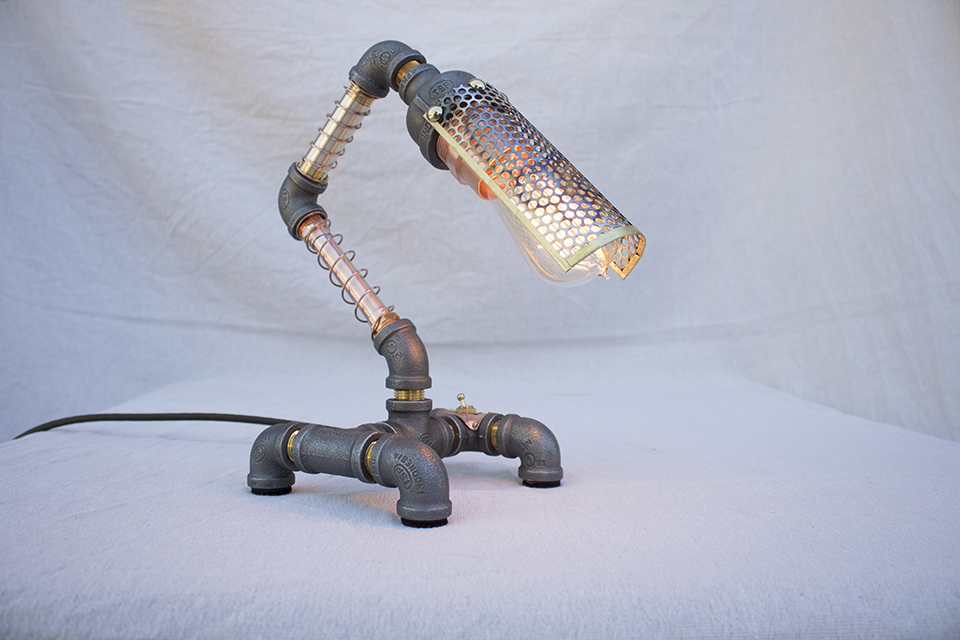

The שלטי גבורים clearly implies that the menorah must be lit in a situation where it will be able to remain lit for the required amount of time. The Maharil Diskin is supported by the שלטי גבורים to Maseches Shabbos, who says that if one lights the menorah in a windy place, one would be required to relight the candles even according to the opinion of כבתה אין זקוק לה just like if he did not put enough oil in his menorah to keep It burning for the required duration. The menorah was not set up from the beginning for it to stay lit for the required time and therefore one cannot take advantage of the halacha of כבתה אין זקוק לה.

The talmidim of the Maharil Diskin have a tradition not to use such a glass case, since the Maharil Diskin was of the opinion that the glass case is problematic for this very reason. According to the second approach, however, the glass case is problematic, since the candles would certainly blowout if the glass door was open, which is the case during the actual lighting, the menorah is being lit in a situation where it could not remain lit for the required duration. According to the Taz 's understanding, the glass contraption is a non-issue because one fulfills the mitzvah as soon as he lights the candles, and what happens afterwards is inconsequential. Our situation, the glass case housing the menorah, would be a nafka minah between these two understandings of כבתה אין זקוק לה. The inverse is seemingly true as well - according to R' Chisda, since one originally set up the candles in a place where they could have remained lit for the required duration, one need not relight them if they happen to go out on their own. This approach is based on Rashi to Shabbos 21a, who explains that according to R' Huna, who holds that one must relight the candles if they go out, we require the lighter to set up his menorah in a place where they can remain lit for the proper amount of time, in order to prevent negligence in relighting the candles if they go out. Since they were lit in such a place, if the candles happen to go out the lighter would not be obligated to relight them. The Sfas Emes (Shabbos 21a) seems to take a different approach: since the candles must remain lit for a certain amount of time, it is assumed that they will be lit in a place where they could realistically remain lit for that amount of time. What is the reasoning behind this concept? The Taz (סימן תרעג:ח) understands that as soon as one lights the menorah he has fulfilled the mitzvah, and therefore if the candles blowout it is unnecessary to relight them. The gemara concludes that we follow the opinion of R' Chisda - כבתה אין זקוק לה - and one is not required to relight the candles. The gemara in Shabbos (21a-b) records a machlokes between R' Huna and R' Chisda whether one is required to relight the menorah if the candles go out within the required duration that they must remain lit.

Does this contraption run counter to the halacha of הדלקה עושה מצוה (the mitzvah is lighting the menorah in a place where the candles would be able to remain lit for the required duration) and take unfair advantage oft the halacha כבתה אין זקוק לה (if the candles go out, one need not relight them)? The side of the glass case that is open during the lighting of the menorah is closed immediately after the lighting to prevent the candles from blowing out. In order to fulfill the mitzvah to place the menorah outside one's front door (Shabbos 21b), a glass case was invented to protect the candles from blowing out in the wind, enabling the lighting of the menorah outside. It is common practice in Eretz Yisroel to light the menorah outside one's front door.


 0 kommentar(er)
0 kommentar(er)
